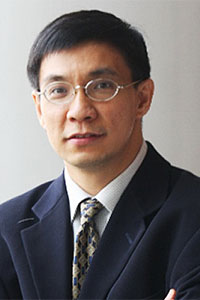I hardly express my political views, since I am aware that I am not an expert on political issues, but today I would like to offer a personal opinion as a citizen who is concerned about the current situation.
As the conflict intensifies, we can see how wide the gap is between people with different thoughts and beliefs in society, particularly on the issue of the monarchy -- an extremely sensitive issue that puts our society at risk of further confrontation which could turn violent.
For many Thais, a crucial question emerges: what kind of political system, as well as the role of the monarchy, is right for the country? Both sides have expressed their beliefs, which still show no signs of converging at this point.
As the debate continues, each side must be patient and empathetic towards each other.
I believe that in a fast-changing world, no political entity or institution can survive without adapting. No organisation or association can stay in power without the people's support. Attempts to block the country from adapting, or worse, to take the country back 80-90 years, will not succeed and will in fact cause widespread damage.
At certain points in life, we find it difficult to reach a consensus on some issues or to convince those with differing beliefs to agree with us. At such times the next question is inevitable -- how can we, despite all the differences, coexist in the same society?
No matter what happens, we will still have to live in the same country. We can't kick someone out or get rid of them in other ways, just because they have a different view. Not to mention, those with different views may well be our friends or a family member. Therefore, I would like to put this idea out for everyone to consider.
To begin with, we should never think that we have passed the point where we cannot find a way out of the problem together. At least, we are fortunate that the ongoing conflict is about politics, not religion or race, which are far more difficult to resolve.
More importantly, we must be aware that we have no other option but to talk and negotiate with each other. Constructive talks can take place through parliamentary channels, passing the issue on to our MPs to work it out.
And if the parliamentary process fails, we should go back to the people, asking them to exercise their right in a referendum. However, the government must assure them that the process is fair, transparent and conducted in a safe atmosphere without intimidation -- unlike the 2017 charter referendum -- so that all the parties accept the results.
Of course, a referendum is not a panacea but at least it will help our society move forward, the same way the British have on Brexit. The whole society made a joint decision, even though the result might not have been satisfactory to many.
Parallel to the above formal processes, informal talks should also be held. There should be a person accepted by all stakeholders acting as a facilitator to the discussions. That said, these talks shouldn't be held in a high-profile manner, or there will be pressure on both sides which would make it difficult for them to reach a compromise. The question now is, who is the right facilitator that will be accepted by both sides? Whether or not we can easily find this person should not be used as an excuse to not have informal and non-binding consultations.
Of course, the proposed process will only be possible under an open and safe atmosphere, so both sides can have the confidence to air their views as trust builds up.
First, the government must restrain itself and avoid measures which intensify the conflict.
Prime Minister Prayut Chan-o-cha made the right move by revoking the state of emergency and releasing some of the detained anti-government activists. But to create enough trust and foster a conducive environment for talks, the government must also free those detained over political charges, show open-mindedness by listening to dissidents and avoid using illegitimate threats.
The pro-democracy movement, meanwhile, should try to understand those who are on the opposite side and avoid provocative gestures, in words or symbols, in sensitive situations that may lead to confrontation.
It is of the utmost necessity that every party concerned avoids all forms of violence and tones down accusations or condemnation against each other. Such blunt acts will undermine efforts to create a safe atmosphere.
No matter how the results come, the winners should not corner the losers. The latter, at the same time, should accept the result. If they want to change society's decision again in the future, they should opt for parliamentary processes or a referendum as the main means of bringing about change.
Our society is at a crossroads and any missteps could trigger violence, causing losses and further dividing friends and families. At this difficult time, I think that only reason, compassion and tolerance of those with different views can help us avoid losses and move on.
Somkiat Tangkitvanich is president of the Thailand Development and Research Institute.
